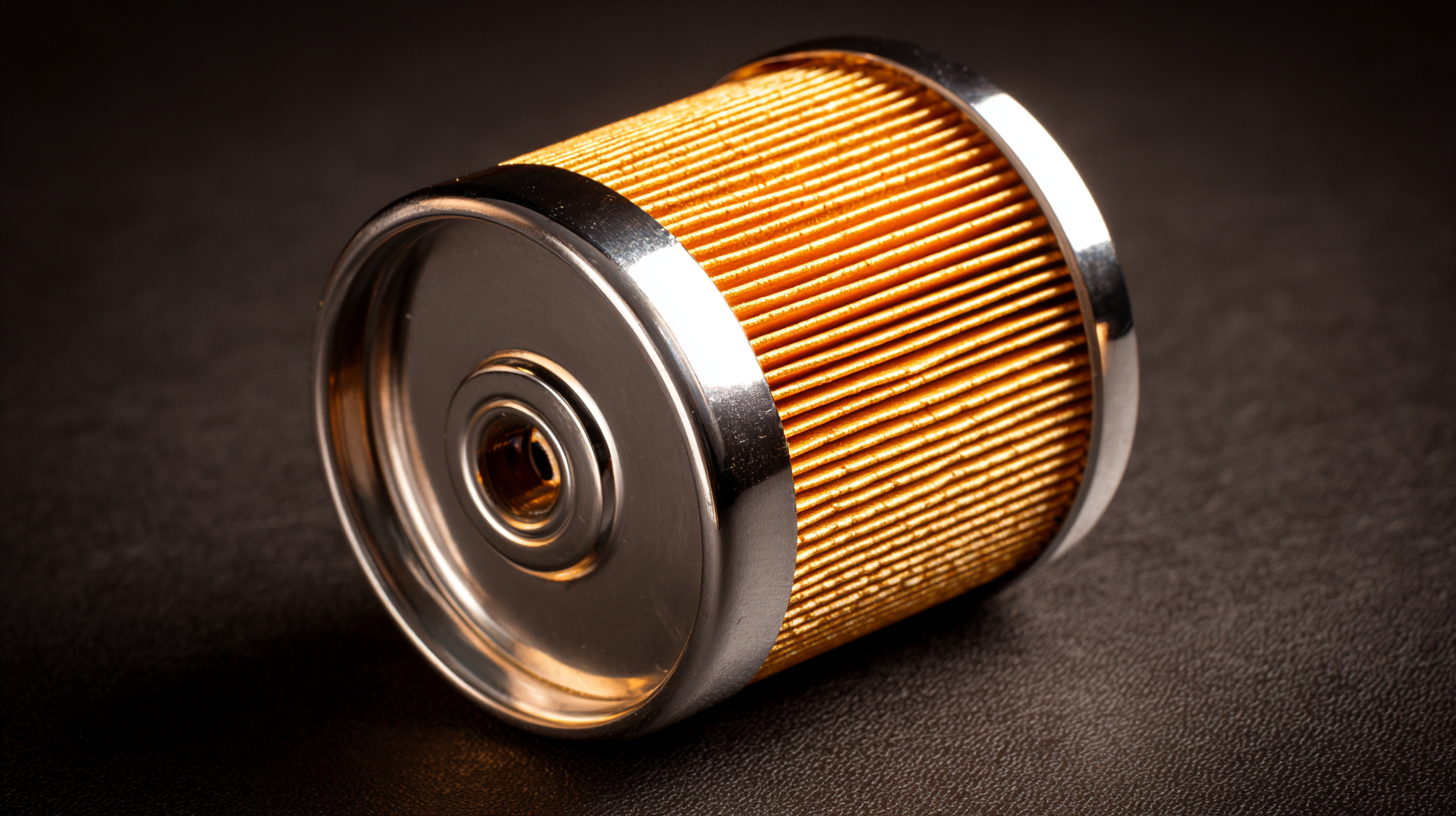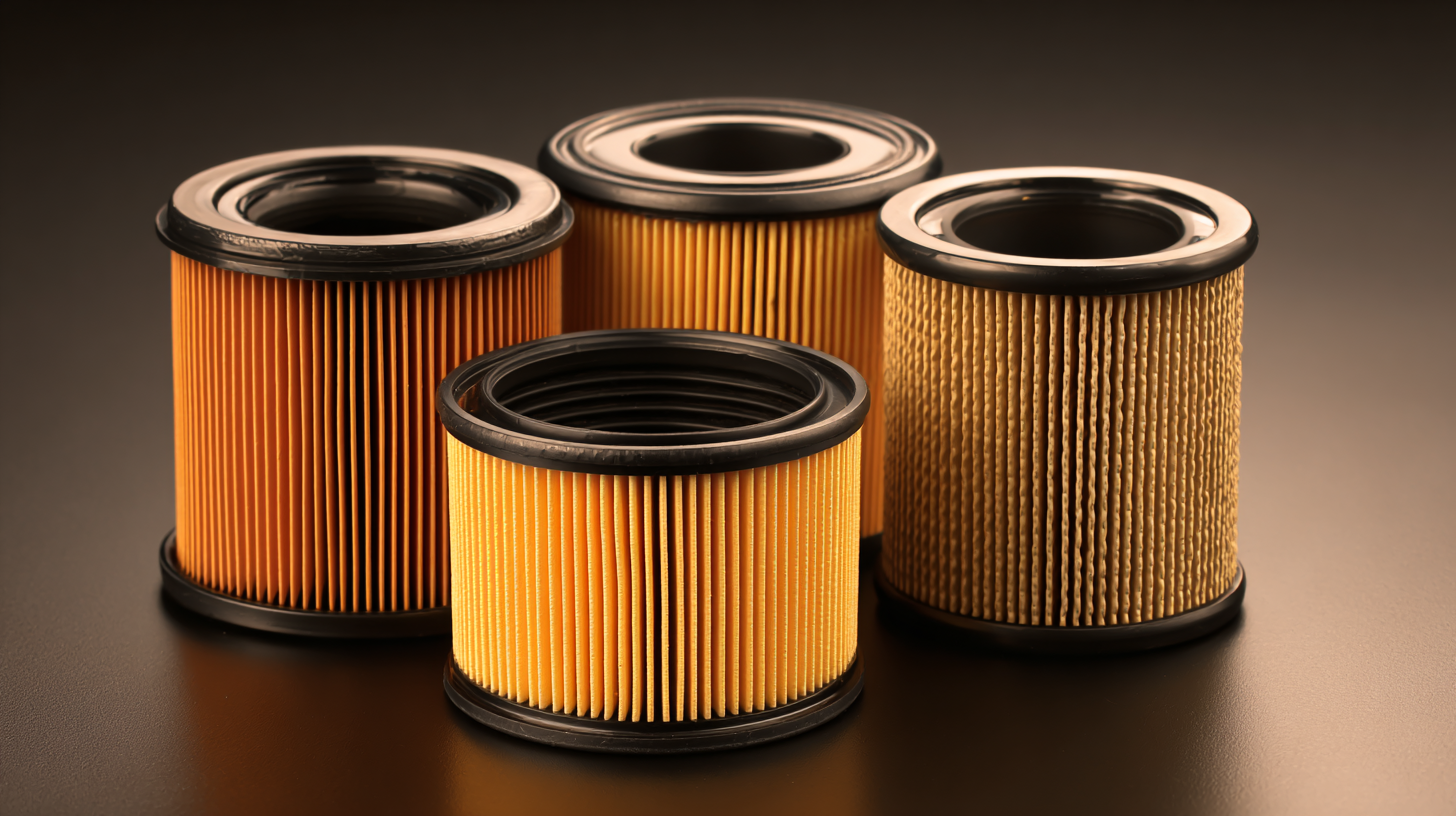 Choosing the right auto oil filter is critical not only for maintaining engine performance but also for ensuring the longevity of your vehicle. According to the American Petroleum Institute, approximately 75% of vehicles on the road have significant engine wear due to inadequate filtration, highlighting the importance of selecting the best auto oil filter. Quality filters can prevent contaminants from damaging internal engine components, ultimately extending the lifetime of the engine.
Furthermore, a report by MarketsandMarkets predicts that the global automotive oil filter market will reach $5.5 billion by 2026, demonstrating the growing emphasis on engine maintenance and efficiency. Given the plethora of options available, understanding how to choose the best auto oil filter becomes essential for both vehicle owners and industry professionals, as the right selection can lead to improved fuel efficiency and reduced emissions.
Choosing the right auto oil filter is critical not only for maintaining engine performance but also for ensuring the longevity of your vehicle. According to the American Petroleum Institute, approximately 75% of vehicles on the road have significant engine wear due to inadequate filtration, highlighting the importance of selecting the best auto oil filter. Quality filters can prevent contaminants from damaging internal engine components, ultimately extending the lifetime of the engine.
Furthermore, a report by MarketsandMarkets predicts that the global automotive oil filter market will reach $5.5 billion by 2026, demonstrating the growing emphasis on engine maintenance and efficiency. Given the plethora of options available, understanding how to choose the best auto oil filter becomes essential for both vehicle owners and industry professionals, as the right selection can lead to improved fuel efficiency and reduced emissions.
When selecting an auto oil filter, understanding the different types available is crucial for optimal engine performance. The two primary categories are full-flow filters and bypass filters. Full-flow filters, as the name implies, handle all of the engine's oil, ensuring that contaminants are effectively removed before they reach critical engine components. This type typically contains synthetic or cellulose media to trap a variety of particles, making it ideal for standard driving conditions.
On the other hand, bypass filters provide a secondary filtration system, often used in conjunction with full-flow filters. They work by circulating a portion of the oil through a more refined filtering medium, capturing finer particles that may evade standard filters. These are especially useful for high-performance vehicles or those subjected to harsh driving conditions, where the risk of sludge and debris buildup is greater. Understanding these options allows drivers to choose the most suitable oil filter based on their vehicle's needs and driving habits, ultimately enhancing engine longevity and efficiency.
When selecting the best oil filter for your vehicle, several key factors should be considered to ensure optimal engine performance and longevity. Firstly, filter efficiency is crucial. According to a report by the American Petroleum Institute (API), high-quality oil filters can capture up to 99% of contaminants, including dirt and metal particles, which is essential for maintaining clean engine oil and reducing wear. This efficiency not only affects engine life but also influences fuel economy, with studies indicating that a clean oil filter can improve fuel efficiency by approximately 2-3%.

Another significant factor is the filter's compatibility with your vehicle's engine. Different engines require specific oil filter designs, such as size, threading, and bypass valve settings. A comprehensive survey by J.D. Power highlighted that using the correct oil filter can lead to a 20% reduction in engine-related issues compared to those who use inappropriate or substandard filters. Furthermore, considering the type of oil you use—synthetic versus conventional—can also impact filter choice, as synthetic oils often require filters with advanced materials to handle their higher detergent levels and maintain longer service intervals.
When selecting the right auto oil filter, understanding the importance of oil filter ratings and certifications is crucial. Oil filter ratings indicate the filter's efficiency in removing contaminants from the engine oil. Common standards, such as the ISO 4548-12, assess the filter's ability to capture particles of varying sizes, providing a clear picture of its performance. Choosing a filter with higher ratings can lead to improved engine protection and longevity, as they are more capable of trapping harmful debris that could cause wear and tear.
Certifications further enhance the decision-making process by ensuring that the filter meets industry standards for quality and performance. Organizations like the American Petroleum Institute (API) provide certifications that signal a filter's ability to perform under specific conditions and comply with manufacturers' recommendations. It's crucial to select filters bearing these certifications, as they indicate reliability and effectiveness. Familiarizing yourself with these ratings and certifications can empower you to make informed choices, ultimately contributing to your vehicle's health and operational efficiency.
Choosing the right size and compatibility for your auto oil filter is critical for ensuring optimal engine performance. According to the American Petroleum Institute (API), using an oil filter that fits your vehicle properly can increase the filter's efficiency by up to 30%. This is crucial because an ill-fitting filter may allow contaminants to bypass, leading to accelerated wear on engine components and potentially costly repairs.
To identify the correct size and compatibility, first consult your vehicle's owner's manual, which typically includes specifications for the recommended oil filter. Additionally, various manufacturers provide databases and tools online that help match filters based on vehicle make, model, and year. A report by the Society of Automotive Engineers (SAE) indicates that 87% of engine failures are related to improper lubrication, including the use of incorrect oil filters. Therefore, ensuring that your oil filter is not only the right size but also meets industry standards is paramount for maintaining engine health.
| Filter Type | Compatibility | Nominal Efficiency | Micron Rating | Lifespan |
|---|---|---|---|---|
| Standard Spin-On | Most passenger cars | 95% | 20 microns | 5,000 miles |
| Screw-On Filter | American cars | 98% | 10 microns | 7,500 miles |
| Cartridge Filter | European cars | 99% | 5 microns | 10,000 miles |
| Magnetic Filter | Various models | 97% | 15 microns | 15,000 miles |
When it comes to maintaining your vehicle, the oil filter plays a crucial role in ensuring optimal engine performance. Regular maintenance of your auto oil filter is key to preventing dirt and debris from contaminating the engine oil. Here are a few tips for effective maintenance and replacement of auto oil filters.
First, check your oil filter during every oil change. It is generally recommended to replace the oil filter every time you change the oil to maintain the cleanliness of your engine. Additionally, familiarize yourself with your vehicle's specifications to choose the right filter compatible with your engine type, which can vastly improve performance.
Secondly, pay attention to the signs that indicate it’s time for a replacement. Unusual engine noises, decreased fuel efficiency, or an oil light on the dashboard may suggest a clogged filter. To further enhance performance, consider using high-efficiency filters that offer better filtration and longer service life, complementing your vehicle’s oil type and driving conditions.







